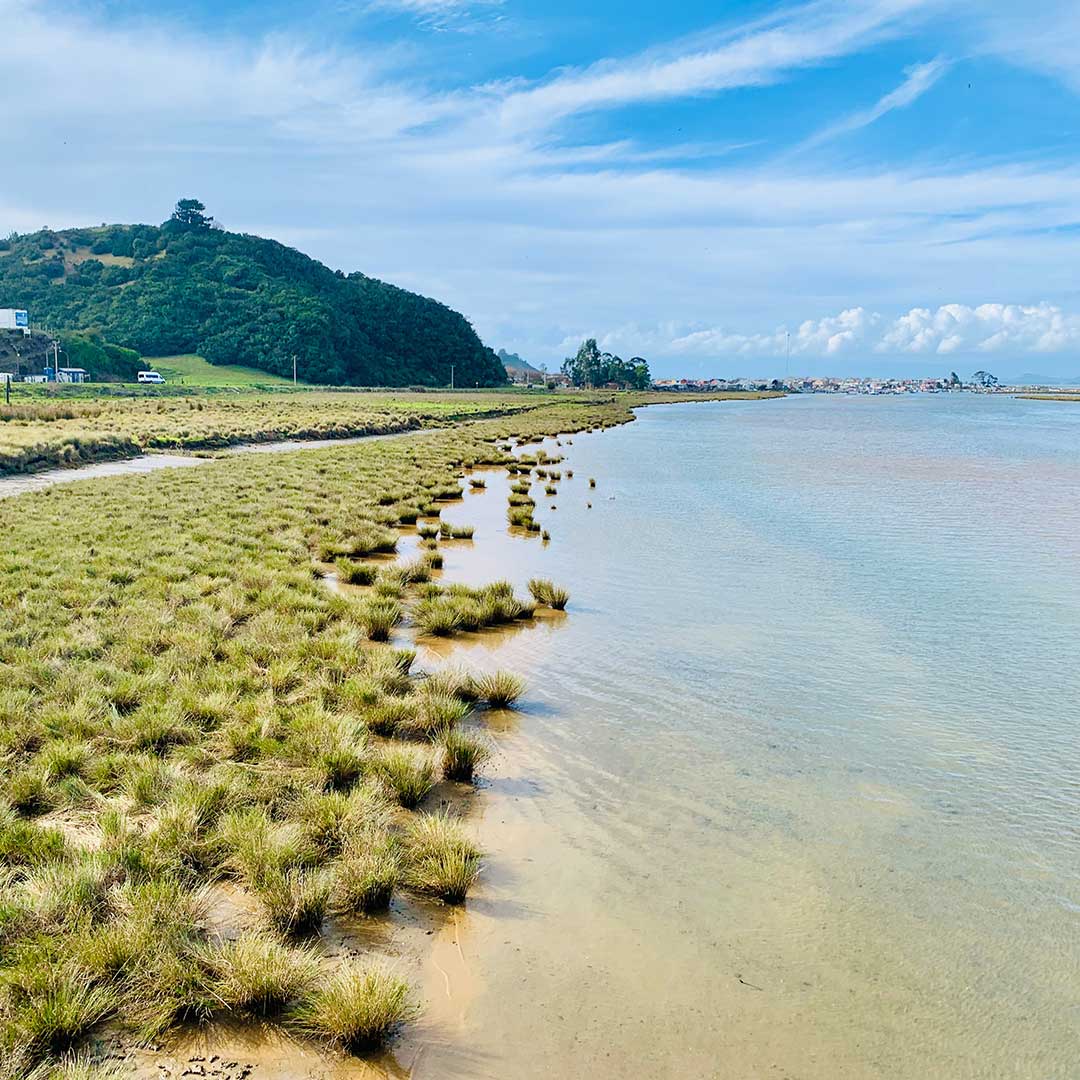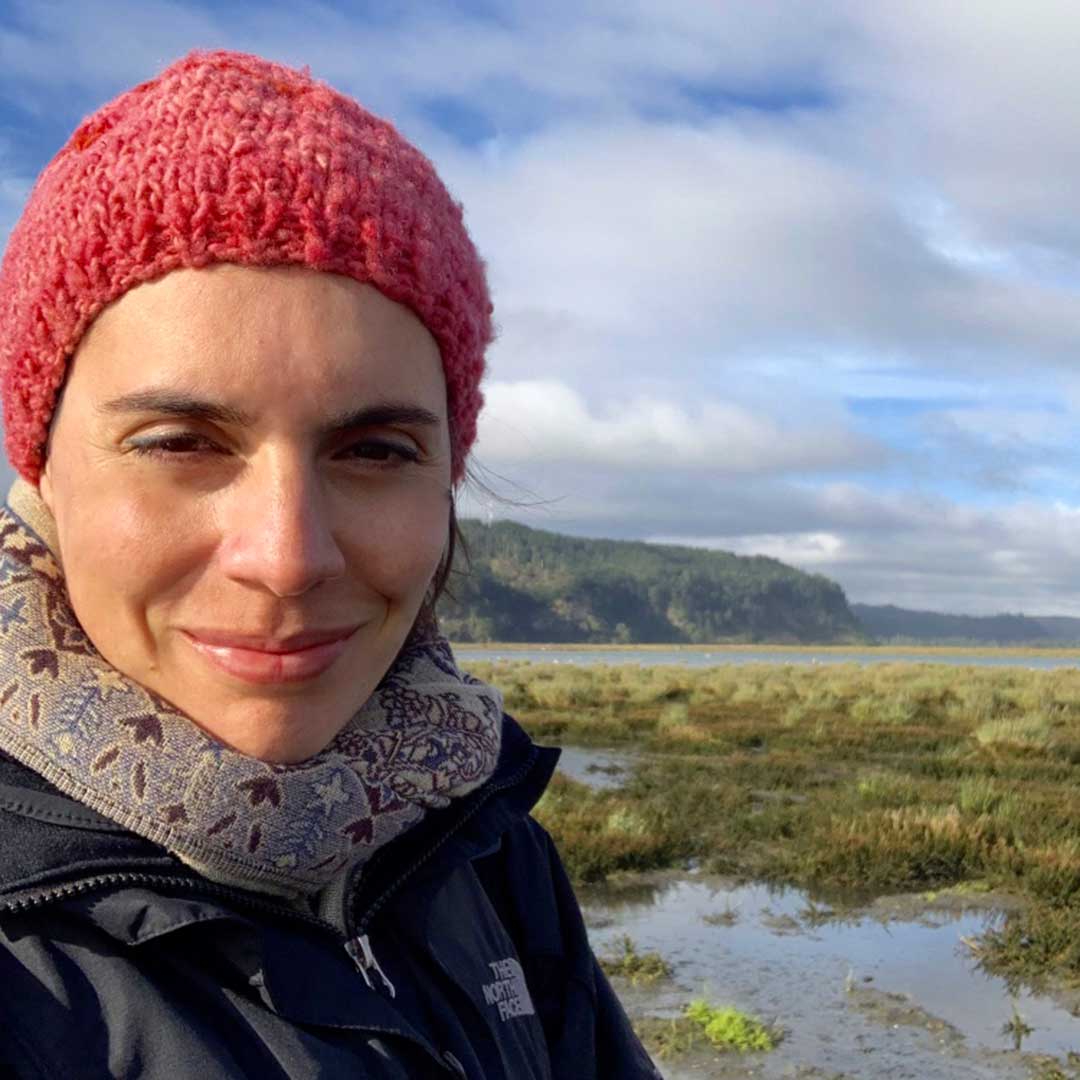Manuela Erazo: Community-based Conservation for Coastal Wetlands
This month our featured Fellow is Manuela Erazo, a member of the Class of 2020. Manuela Erazo is a social anthropologist from Santiago, Chile, who received her master’s degree in Environmental Science from Melbourne University in Australia. Manuela is also co-founder of ESA Consultores, a consulting firm that works on projects related to environmental management and biological conservation for government agencies and non-governmental organizations.
Manuela’s fellowship project is based in Tubul-Raqui, a coastal wetland and important shorebird site in the southern part of Chile. The goal of her project is to develop a balanced management plan for Tubul-Raqui, with a focus on community engagement. Manuela first heard about the Coastal Solutions Fellowship through a close friend. She was intrigued by the program’s cross-disciplinary approach and networking opportunities, and decided to apply. As she explained, “I like the focus of the program where there are people from different professional backgrounds…it’s very innovative, it’s very creative as well!”
Tubul-Raqui was an easy choice for the location of her project because she was already familiar with the area, especially the local fishing community. Manuela also wanted to bring greater recognition to this important but underappreciated wetland. Her project has three main objectives: integrate the biocultural aspect of shorebird conservation, create a master plan for a new landscape architecture project, and officially establish the area as a nature sanctuary.
To achieve the first objective, Manuela is working to integrate a greater cultural awareness and traditional knowledge of current ecological threats into the conservation model. Historically, the communities around Tubul-Raqui have depended on the natural waterways for their livelihood, using them for watering livestock, fishing, and forestry. However, these activities can place a strain on the wetland’s water supply, so Manuela is working with the locals to find ways to minimize the negative environmental impacts. Manuela has also organized workshops to learn more about Tubul-Raqui’s historical biodiversity from the locals themselves. Manuela believes that this community-focused approach will lead to more balanced, informed solutions that can work for both people and shorebirds.
Another important part of Manuela’s efforts in Tubul-Raqui involves the creation of a small nature center at the mouth of the wetland to educate the public. Manuela hopes this project will show people how the different elements they’ve been working with – landscape, architecture, and land governance – can collaborate to create something unique and inspiring. “So, you could say ‘Why is an anthropologist working with all these different kinds of things?’” Manuela commented, “As a social scientist and as a person who has great experience working with local communities, I think you need that kind of skill in order to integrate all these different elements…because it’s not just building something, it’s how you engage people in the building process, in the management plan, in the nature sanctuary.”
Finally, Manuela is working with the Chilean authorities to designate Tubul-Raqui as a protected nature sanctuary. To prepare, Manuela worked with her mentor and several other scientists to document the biological importance of this area, research the threats that the wetland is facing, and identify the management practices to revert these threats. This information was collected into a file which has been critical in the process for the creation of the sanctuary. In the future, Manuela hopes to continue working with the community at Tubul-Raqui and contribute her knowledge to the nature sanctuary’s management plan, to be completed after the sanctuary designation has been approved.
Although implementing her project during a pandemic has been challenging, Manuela appreciates the learning opportunity and the unique experiences she’s had, such as working virtually with colleagues from around the world. Ultimately, she believes that the human element is essential to shorebird conservation. By connecting the local community to shorebirds and involving them in the governance of Tubul-Raqui, Manuela hopes to inspire people to protect threatened ecosystems and the birds that rely on them.


